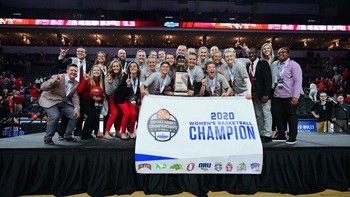Faculty exchange program broadens economic perspective for USD students professor
Jörg Winterburg, Ph.D., former dean of the business school at Braunschweig University of Applied Sciences and visiting professor at the University of Linköping in 2007-08, will teach European Political Economics to students in the Beacom School of Business for two weeks beginning in September. At the same time Winterburg is on the USD campus, Bob Tosterud, Ph.D., Freeman Chair of Entrepreneurial Studies and a professor of economics at USD, will be in Germany at the University of Wolfsburg to educate European students on entrepreneurship: American style.
"Everyone is quick to say 'we need to broaden our outlook to include a world view,' but few offer practical ways to do so,” noted Michael J. Keller, dean of the Beacom School of Business at USD. "Our two schools have worked out this exchange to actually deliver on our promise to students to broaden horizons to include an international view of events."
According to Tosterud, while entrepreneurship in America has been a lifeblood of the economy for centuries Europeans, generally, have been hesitant to embrace small business ownership principles. Appropriately, Wolfsburg, a town of more than 120,000 people, is the international headquarters for one of the most entrepreneurial companies in Europe – Volkswagen.
"The European Union has recently started a massive inquiry called the Lisbon Strategy for Growth and Jobs, designed to determine why European countries and cultures are slow to adopt entrepreneurship," stated Tosterud, who will teach for three weeks in Germany beginning Sept. 10. "The American style of entrepreneurship has always been a tremendously powerful force. Every job, even government jobs, can trace their origin to an entrepreneur. New businesses are also often the originators of new technologies and innovation."
While he’s teaching in Germany, Tosterud hopes to learn more about the growing European economy and the 27 countries that comprise the European Union as well as to discover what entrepreneurial strategies would work in Europe. Working with his students and colleagues at Wolfsburg, Tosterud will ask the question, “are some cultures in Europe less entrepreneurial than others and, if so, why?”
When explaining the American-style of entrepreneurship to his Wolfsburg students, Tosterud can speak from experience. A starter of five businesses himself, including the successful “His Essence” candle business he started with his wife, Karen, four years ago, Tosterud reiterates the risks and rewards associated with developing your own business.
"I can’t teach it unless I do it," Tosterud said with a smile. "I want them to look beyond the professor and see the entrepreneur."
As Tosterud seeks answers to his entrepreneurial questions, Winterburg will be sharing his point of view of the international political economy doing his best to persuade students at USD to think in the same way. Courses Winterburg is scheduled to teach at The U include t theory of economic systems and European vs. U.S. Economic Policy.
"I am, from my heart, a liberal economist and, therefore, I think that we have to find solutions to make our economic system more alert to these developments," Winterburg explained, "to avoid successes of non-liberal and, sometimes, even non-democratic ideas."
"This is, by the way, one reason that makes the European model interesting for the world and for American students," he added.
Winterburg, too, can speak to students sharing his experience as a full-time political adviser before he started teaching at the university level in European countries such as Hungary, Finland and Sweden. As a political adviser in the fields of social and economic policies, Winterburg traveled to Jordan, Tunisia, Vietnam, Thailand, Serbia and Poland. He said all of these nations face similar problems in terms of globalization: inconsistent economic growth.
"Economic growth does not meet every part of the societies," he noted. "In contradiction to the effects of growth and development in the last century, today the poor often remain poor while the well-educated people and the owners of capital and resources are even better off. There are seldom trickle down effects."
The trickle down effects of this exchange program, both Tosterud and Winterburg agree, are significant as students will receive input from two professors with a world of economic expertise.
Photographs are available for download at www.usd.edu/urelations/images/B_Tosterud.jpg; www.usd.edu/urelations/images/J_Winterburg.jpg; and www.usd.edu/urelations/images/M_Keller.jpg.


